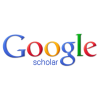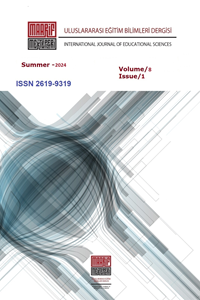Research Article
Issue Reviewers
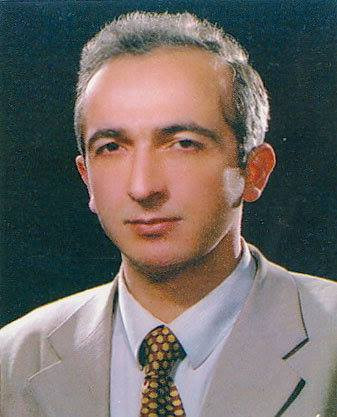
Dr. Aydın's research interests and areas of specialization include
• Analytical chemistry
• trace element analysis,
• materials and processes
• philosophy of science,
• chemistry education,
• chemistry curriculum,
• Teacher Education
• material development,
• science process skills,
• interdisciplinary sciences,
• education studies and sustainability,
• STEM education


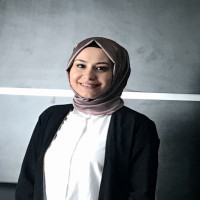
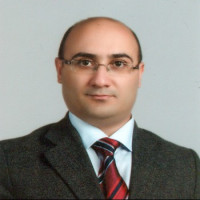



Aim & Scope
Aim
The Maarif Schools International Journal of Educational Sciences (MM-IJES) is an international peer-reviewed journal that has been published biannually (Winter/December and Summer/July) by Maarif Schools Publications since 2017. MM-IJES was established with the aim of supporting and publishing innovative and groundbreaking academic work in the field of educational sciences. The journal particularly focuses on methods, policies, and technologies that enhance the quality and effectiveness of education. It aims to foster the exchange of knowledge and ideas within the global educational community and to make tangible contributions to educational practice. MM-IJES aspires to create a lasting impact in the field of educational sciences, progressing as a valuable resource for researchers, educators, and policymakers.
Scope
The Maarif Schools International Journal of Educational Sciences (MM-IJES) publishes original academic works spanning a wide spectrum of educational sciences. Our journal places special emphasis on areas such as Environmental Education, Child Development and Education, Democracy and Human Rights Education, Values and Love Education, Religious Education, Philosophy of Education, Education Policies, Educational Programs and Teaching, Educational Psychology, Educational Sociology, History of Education, Educational Technology, Education Management, Measurement and Evaluation in Education, and Guidance and Psychological Counseling in Education. Additionally, we are committed to advancing knowledge in Science Education, Fine Arts Education, Public Education and Lifelong Learning, Primary Education, Mathematics Education, Vocational and Technical Education, Engineering Education, Pre-School Education, Teacher Training, Special Education, Health Education, Social Sciences Education, Sports Science Education, Turkish Education, Educational Programs of Turkish-speaking Republics, Foreign Languages Education, and Higher Education.
MM-IJES strives not only to publish groundbreaking and innovative contributions that challenge the boundaries of educational sciences but also to expand and deepen the field’s body of knowledge.
Author Guidelines
Abstract
Abstract should be written in 11 font size, single-spaced, justified and minimum 200 and maximum 350 words. If the manuscript is written in English, the Abstract appears in this section immediately after the author names. Abstract briefly covers the purpose of the research, -for empirical studies- the methodology (research model, characteristics of the participants, data collection tools, data analysis), findings, conclusions and recommendations.
Keywords: Consists of 3-6 words. Keywords are separated by commas (,) and written in lower case.
Abstract should be written in 11 font size, single-spaced, justified and minimum 200 and maximum 350 words. If the article is written in English, the Abstract should be written in Turkish.
Keywords: Consists of 3-6 words. Keywords are separated by commas (,) and written in lower case.
- Bold, normal sentence order, left justified
- Bold, italicized normal sentence order
- Italic normal sentence order
- Italics normal sentence order, text continues
Body Text should be 12 pt, justified, single-spaced and indented 1 at the beginning of the line.
In-text Citation
In-text references must comply with APA 6 (http://www.apastyle.org/)

Data collection
Data collection tools
Data analysis
Abd-El-Khalick, F. (2001). Embedding nature of science in preservice elementary science courses: abandoning scientism, but... Journal of Science Teacher Education, 12(3), 215-233.
Bacon, F. (1999). Novum organum (Çev. S. Ö. Akkaş). Ankara: Doruk Yayınları. (Eserin orjinali 1620’de yayımlandı).
Carnap, R. (1952). The cognition of inductive metods. Chicago: University of Chicago Press.
Çüçen, A. K. (2006). Mantık. Bursa: Asa Kitabevi.
Goodman, N. (1955). The new riddle of induction, Retrieved March 10, 2007 from http://fitelson.org/confirmation/goodman_1955.pdf
Hanson N.R. (1958). The logic of discovery. The Journal of Philosophy
55(25), 1073-1089. doi: 10.2307/2022541
Ho,Y.C.(1994). Abduction?,Deduction?,Induction? Is there a logic of exploratory data analysis? Retrieved December 23, 2007 from http://www.creative-wisdom.com/pub/Peirce/Logic_of_EDA.html
Lederman, N.G. (2004). Syntax of nature of science within inquiry and science. In L. Flick and N.G. Lederman (Eds.), Scientific inquiry and nature of science: Implications for teaching, learning, and teacher education (pp. 301-318). Dordrecht: Kluwer Academic Publishers.
Lederman, N.G. (2007). Nature of science: past, present, and future. In S.K. Abell and N.G. Lederman (Eds.), Handbook of research on science education (pp. 831-880). Mahwah, NJ: Lawrence Erlbaum Associates.
Lundström, M. (2007). Students’ beliefs in pseudoscience. Retrieved July 10, 2010 from https://muep.mau.se/handle/2043/4701
Milli Eğitim Bakanlığı [MEB]. (2005). İlköğretim fen ve teknoloji dersi (6., 7. ve 8. sınıflar) öğretim programı. Ankara: Talim ve Terbiye Kurulu Başkanlığı.
Peirce,C.S.(1957). Essays in the Philosophy of Science, New York: Bobbs-Merrill.
Tekin, Ö.F. (2011). Bilim felsefesinde ilgi kayması: sonuçtan sürece geçiş. (Yayımlanmış Yüksek Lisans Tezi). Mersin Üniversitesi Sosyal Bilimler Enstitüsü, Mersin.
[*] This article is derived from the conceptual framework of the doctoral/master's thesis titled "......." prepared by ......... under the supervision of ........
[†]Unvan, Üniversite, Fakültesi, Bölümü, xxxxxxxx@xxxxx.com
[‡] Unvan, Üniversite, Fakültesi, Bölümü, xxxxxxxx@xxxxx.com
Ethical Principles and Publication Policy
The Maarif Schools International Journal of Educational Sciences (MM-IJES), published by Maarif Schools Publications, is issued biannually in July and December. The journal accepts articles in Turkish and English. All article submissions and editorial processes are managed through the DergiPark platform, from which articles can also be submitted. Articles with fewer than 4,000 words will not be considered for review.
Submitted articles must be original and not previously published or under consideration elsewhere. Initially assessed by editors for adherence to writing standards, submissions are then reviewed by at least two referees. If both referees approve, the article is deemed ready for publication. If one referee dissents while the other approves, the article is sent to a third referee, whose review determines the outcome of the submission process.
Each article must have a title in both Turkish and English, along with Turkish and English ABSTRACT. Below the abstract, 3 to 5 keywords that describe the article must be included. Both the Turkish and English abstracts should encapsulate the aim, method, and findings of the study. Additionally, articles should conclude with an extended abstract in English, which should be between 500-750 words and devoid of subsections, meticulously prepared in terms of grammar and expression, and should reflect the international scope of the research and the journal.
Before being uploaded to the journal, research articles must be accompanied by a plagiarism report, with a plagiarism or similarity rate under 15%. Our journal primarily utilizes ithenticate reports.
As of 2020, a report from the ethics committee is mandatory for all submissions. When uploading the manuscript to the system, the ethics committee report must also be uploaded. For submissions that do not require ethics committee approval, a declaration form signed and scanned by the corresponding author must be uploaded, stating that no ethics committee approval is necessary.
The Maarif Schools International Journal of Educational Sciences (MM-IJES) adheres to the guidelines prepared by the Committee on Publication Ethics (COPE) in 2017. According to these guidelines:
Editor's Responsibilities
The journal editor decides the suitability and potential publication of submitted articles, based solely on the originality of the article and its compliance with the journal’s policy, without discrimination based on the author's race, gender, religious beliefs, ethnic origin, or political philosophy. The editor does not disclose any personal information related to submissions.
Referees' Responsibilities
Referees must evaluate submissions impartially. If they are unable to review within the stipulated time, find the submission outside their expertise, or identify ethical concerns, they should inform the editor.
Authors' Responsibilities
Authors must adhere to publication ethics. They should clearly demonstrate the originality and objectivity of their work. Simultaneous submission of an article to multiple journals is not acceptable. The authors, including the submitting author, must confirm that there is no conflict of interest with any person, institution, law, etc.
Click here to access the COPE Guidelines.
Price Policy
The Maarif Schools International Journal of Educational Sciences (MM-IJES) offers open access to all readers and researchers, providing free access to scientific knowledge. Our journal is committed to making all published articles freely accessible, without the need for registration or subscription.
Indexes
Citation Indexes
Other Indexes
Journal Boards
Editor in Chief


Editor
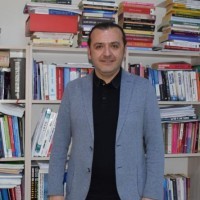
Dr. Barış Eriçok is a faculty member at Ordu University, Faculty of Education. He holds a BA in English Language Teaching, an MA in Educational Administration, and a PhD in Educational Administration, Supervision, Planning, and Economics from Hacettepe University. His doctoral research focused on the internationalization policies of higher education in Türkiye. Currently, he is a postdoctoral researcher at the University College of Teacher Education Vienna (Pädagogische Hochschule Wien), Austria. His research interests include internationalization of higher education, educational leadership, international mobility, quality assurance, academic brain drain, and the implications of artificial intelligence for education. Dr. Eriçok actively contributes to national and international academic journals as an author and reviewer and is open to interdisciplinary research collaborations. Contact: barisericok[at]gmail.com

 Web
Web
Auto-generated board - Please Edit This Title











